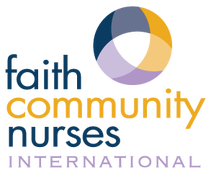|
Visit us on Facebook at: https://www.facebook.com/FaithCommunityNursesInternational/
Please contact us with any website recommendations or corrections at: contact@fcninternational.org
©FCNI
Powered by Wild Apricot Membership Software
|
Visit us on Facebook at: https://www.facebook.com/FaithCommunityNursesInternational/
Please contact us with any website recommendations or corrections at: contact@fcninternational.org
©FCNI
